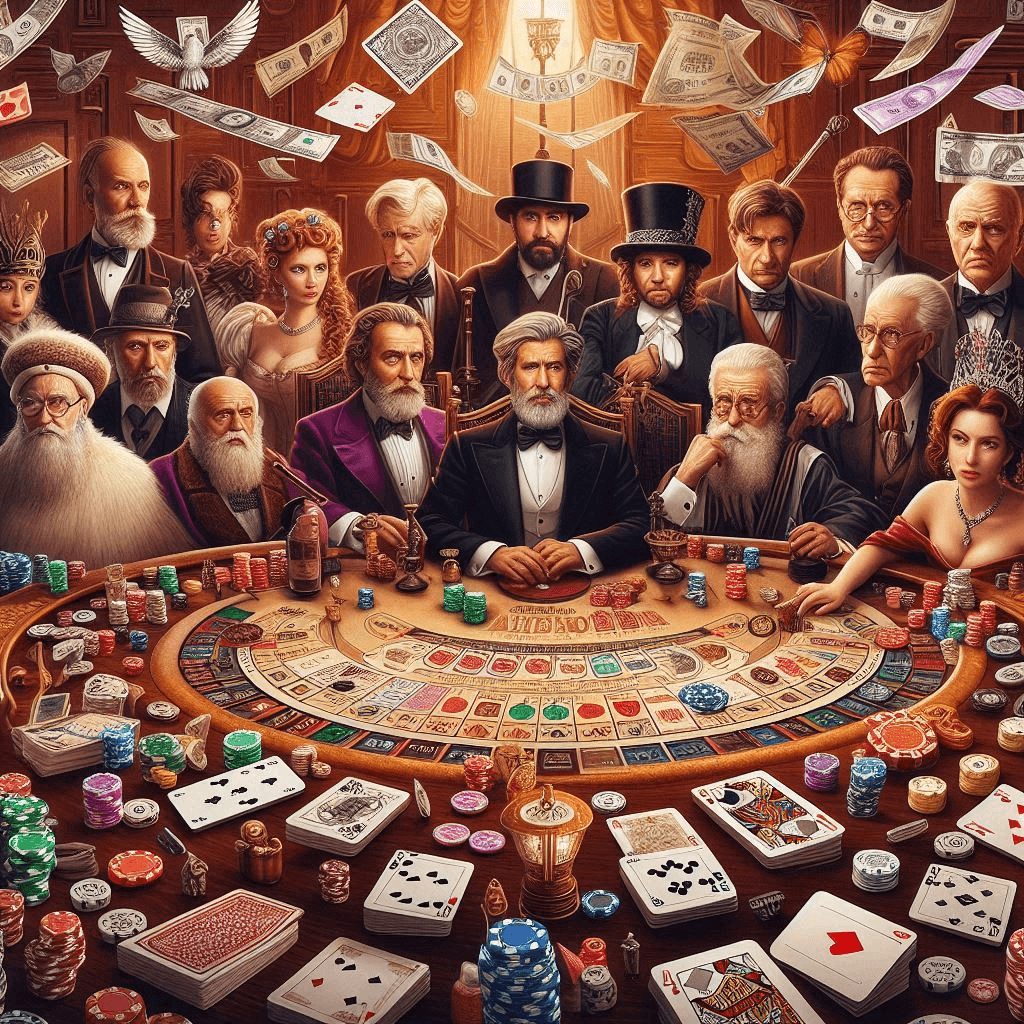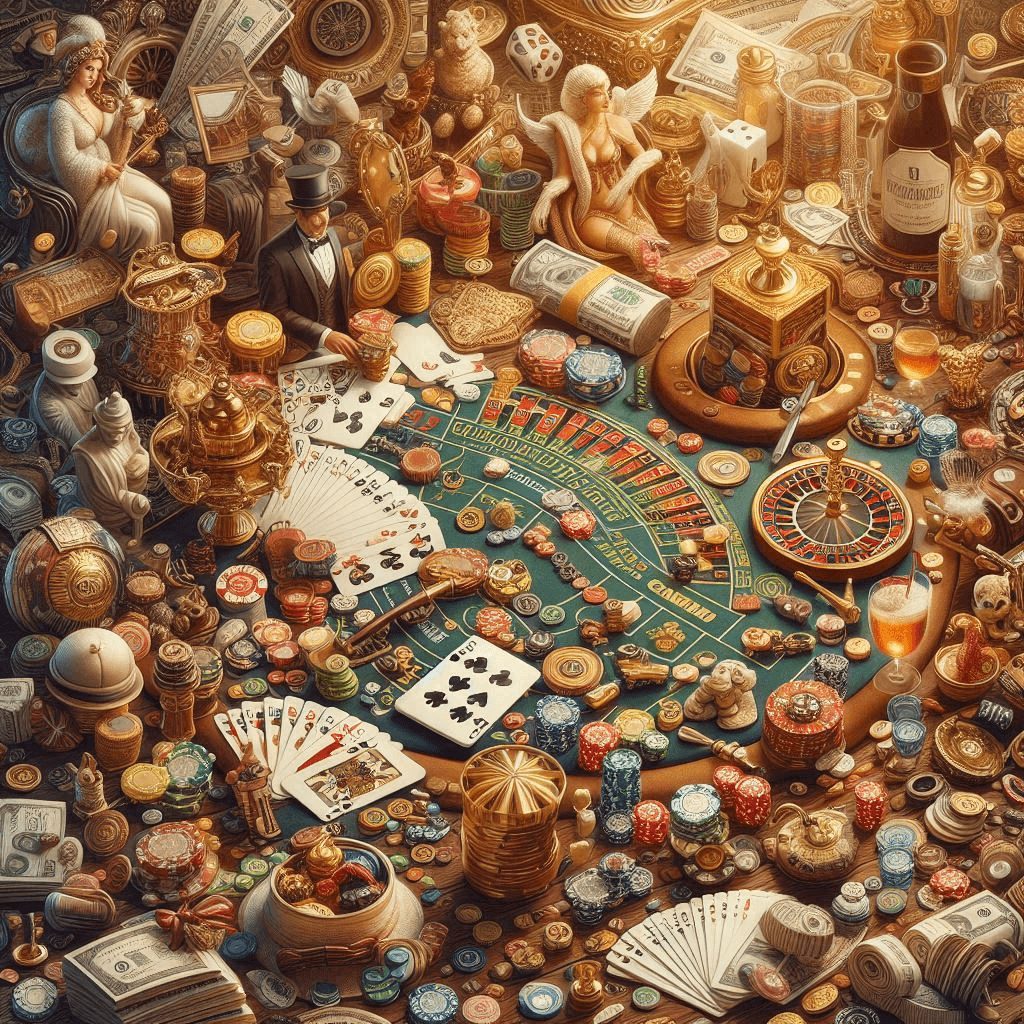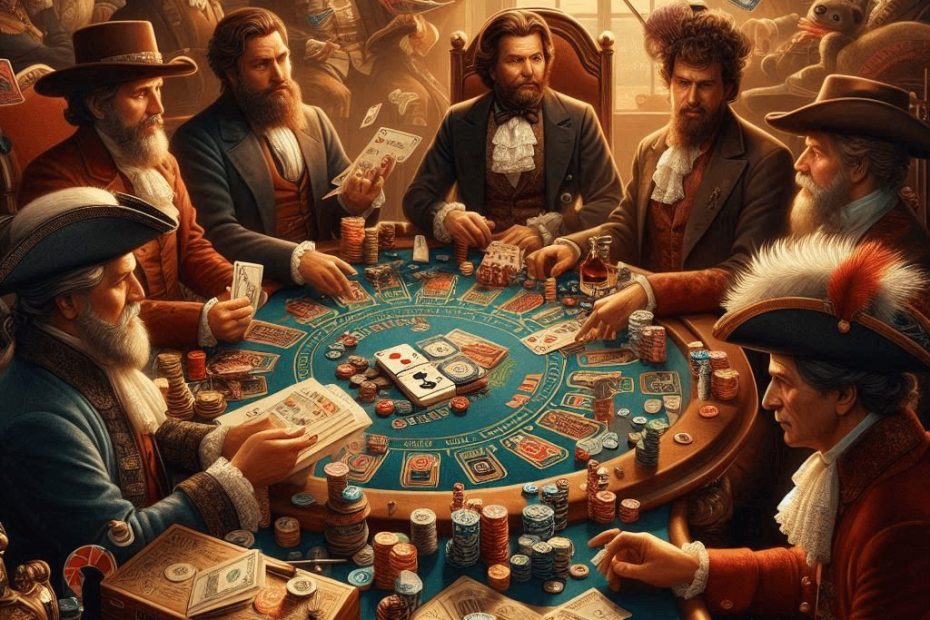Casino table games have captivated players for centuries, evolving from simple pastimes into complex games of chance and skill. From the grand halls of European palaces to the glitzy casinos of Las Vegas, these games have a rich history that reflects the culture and social dynamics of their time. In this comprehensive article, we will explore the origins, evolution, and significance of various casino table games, tracing their journey from Europe to the vibrant streets of Las Vegas.
The Early Beginnings of Casino Games
The Origins of Gambling
Gambling is an ancient practice, with evidence of its existence dating back thousands of years. The earliest records of gambling activities can be traced to ancient civilizations such as the Chinese, Egyptians, and Romans. These early forms of gambling were often tied to religious rituals or used as a method of divination.
The Birth of Card Games
Card games emerged in the 9th century in China, spreading to Europe through trade routes. By the 14th century, cards had become popular across the continent, leading to the development of various games that would eventually evolve into modern casino table games.
- Tarot: Originating in Italy, tarot cards were initially used for playing games before gaining popularity as tools for fortune-telling.
- Baccarat: This game, which traces its roots to Italy, gained popularity in France and would later become a staple in casinos worldwide.
The Rise of Casino Table Games in Europe
The Development of Roulette
Roulette, one of the most iconic casino games, originated in 17th-century France. The game combines elements of chance and strategy, attracting players with its simplicity and thrill.
- Blaise Pascal: The French mathematician is often credited with the invention of the roulette wheel while attempting to create a perpetual motion machine.
- The Double Zero: In the 19th century, the American version of roulette introduced the double zero, increasing the house edge and leading to the creation of the popular variant known as American Roulette.
The Popularity of Blackjack
Blackjack, also known as 21, has roots in various card games played in Europe. Its evolution can be traced back to the 17th century in France, where it was known as “Vingt-et-Un.”
- Adoption in America: The game gained popularity in the United States during the Gold Rush, with various adaptations emerging over time.
- Basic Strategy: In the 20th century, mathematicians developed strategies for playing blackjack, leading to the rise of card counting techniques.
The Emergence of Poker
Poker has a rich and complex history, with origins that can be traced back to several different games. The most widely accepted theory is that it evolved from a 16th-century Persian game called “As Nas.”
- Variations: Over the years, multiple variations of poker emerged, including Texas Hold’em and Omaha, each contributing to the game’s enduring popularity.
- The World Series of Poker: Established in 1970, the WSOP helped popularize poker on a global scale, turning it into a mainstream phenomenon.
The Transition to America
The Gold Rush and Gambling Boom
The California Gold Rush in the mid-19th century catalyzed the rise of gambling in America. As fortune seekers flocked to the West, makeshift casinos and gambling houses sprang up, offering a variety of games to eager players.
- San Francisco: The city became a hub for gambling, with establishments offering poker, faro, and other popular games of the time.
The Birth of Las Vegas
Las Vegas, often referred to as the gambling capital of the world, began its transformation in the early 20th century. The legalization of gambling in Nevada in 1931 set the stage for the city’s explosive growth.
- The First Casinos: The Flamingo, opened by notorious mobster Bugsy Siegel in 1946, marked the beginning of the modern casino era in Las Vegas.
- The Strip: The development of the Las Vegas Strip in the 1950s and 1960s brought iconic resorts and casinos, attracting visitors from around the globe.
The Evolution of Casino Table Games in Las Vegas
The Golden Age of Gambling
The 1960s and 1970s marked a golden age for casino table games in Las Vegas. The introduction of lavish casinos and entertainment options drew in millions of visitors.
- Elvis Presley: The King of Rock and Roll became synonymous with Las Vegas entertainment, further boosting the city’s reputation as a gambling destination.
- Game Innovations: Casinos began to introduce new variations of classic games and innovative table designs to enhance the player experience.


The Rise of the Mega-Resorts
The 1980s and 1990s saw the emergence of mega-resorts, which transformed the landscape of Las Vegas gambling.
- The Mirage: Opened in 1989, The Mirage introduced the concept of themed resorts, featuring elaborate designs and entertainment options.
- Casino Floor Changes: As casinos expanded, the layout of gaming floors evolved, with more emphasis on player comfort and accessibility.
The Modern Era of Casino Table Games
The Impact of Technology
The rise of technology has significantly transformed casino table games in recent years. Innovations such as electronic gaming machines and online casinos have changed how players engage with traditional games.
- Online Gaming: The advent of the internet has made it possible for players to enjoy casino table games from the comfort of their homes. Online platforms offer a wide range of options, including live dealer games that mimic the casino experience.
- Mobile Gaming: The proliferation of smartphones has led to the rise of mobile gaming apps, allowing players to access their favorite table games on the go.
The Return of Classic Games
Despite the technological advancements, classic table games have maintained their popularity. Players continue to flock to blackjack, roulette, and poker tables, drawn by the social aspect and the thrill of live gameplay.
- Live Dealer Games: Many online casinos now offer live dealer games, allowing players to interact with real dealers while playing classic games in real time.
- Variety of Options: Modern casinos often feature multiple variations of traditional games, catering to a wide range of player preferences.
The Cultural Significance of Casino Table Games
Social Interaction
Casino table games have long been a social activity, bringing people together in a shared environment. The communal atmosphere fosters interaction and camaraderie among players.
- Shared Experiences: Players often celebrate wins together, creating lasting memories and friendships.
- Cultural Events: Major poker tournaments and casino events draw in crowds, further enhancing the social aspect of gambling.
The Influence of Movies and Pop Culture
Casino table games have been prominently featured in films, television shows, and other forms of media, shaping public perception of gambling culture.
- Iconic Films: Movies such as “Casino Royale” and “Ocean’s Eleven” have contributed to the allure of casino table games, romanticizing the gambling experience.
- Celebrity Players: High-profile players and celebrities have also influenced the popularity of certain games, bringing them into the mainstream.
Conclusion
The journey of casino table games from their humble beginnings in Europe to the glamorous casinos of Las Vegas is a fascinating tale of evolution and adaptation. These games have endured the test of time, reflecting cultural shifts and technological advancements while maintaining their core appeal. As we look to the future, casino table games will continue to evolve, ensuring that players around the world have access to thrilling experiences and the chance to win big.
